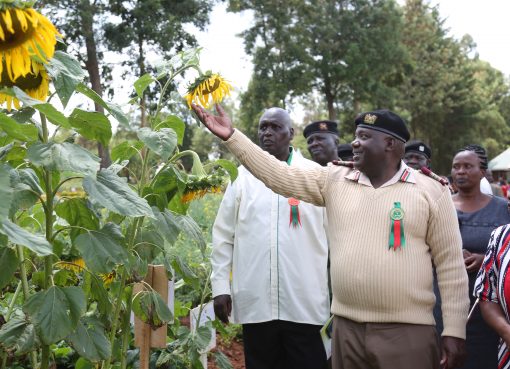Kenya Tea Development Agency (KTDA) managed factory tea prices rose by 1.74 percent to close at USD 2.64 per kilogram (kg) of made tea during the last auction of 2019 compared to USD 2.59 per kg at the same period last year.
This is against the backdrop of a fall in global tea prices occasioned by the global oversupply of the commodity and continuous political instability in the key tea markets. The global tea market currently has a surplus of 200 million kilogrammes of made tea.
Though other agricultural commodities like coffee and milk are experiencing low prices, KTDA CEO, Lerionka Tiampati said KTDA managed factories are diversifying to orthodox teas to reduce overreliance on black CTC tea.
“To date, seven factories namely, Kangaita, Michiimikuru, Imenti, Thumaita, Itumbe, Gitugi and Kiru are producing the teas while three more, Kimunye, Chinga and Kagwe are expected to be commissioned in the first quarter of 2020,” explained Tiampati.
The CEO added that factory companies also continue to work on improving operational efficiencies to curb costs through a number of initiatives. These include investment in small hydropower stations for more stable power supply, continuous farmers training through the farmer field schools and financial literacy.
“The Mombasa auction prices average at USD 2.12 per kilo during the last auction for year 2019, whereas KTDA-managed factories prices fared better, averaging USD 2.64 per kg,” he said.
Tiampati said that due to the on-going rains, green leaf production between July and November rose to 488,020,108 kilogrammes compared to 481,572,794 kilogrammes delivered in the same period last year. Sold teas at the auction dropped by 4.6 percent from 102 million kilogrammes to 97 million kilogrammes in this period.
Pakistan, Egypt, UK, UAE and Sudan remain Kenya’s key export destinations for the black CTC tea type processed in Kenya. These countries have had significant currency devaluation due to political and economic crises.
Tea being a commodity traded in US Dollars, the currency devaluation reduces the purchasing power of the consuming population. Resumption of economic sanctions by the US on Iran also cut off one of the markets for Kenyan teas.
By Joseph Ng’ang’a




